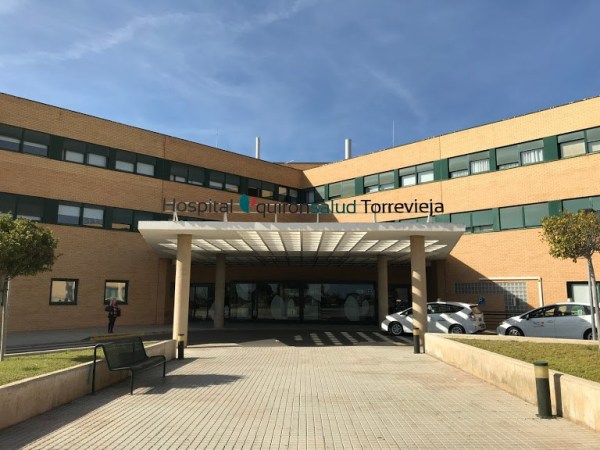This type of lesion presents symptoms such as neck pain, headaches, dizziness and tingling in the hands.
In Spain, there are approximately 150,000 people injured a year in traffic accidents. Though traffic accident lesions can be multiple, and vary greatly, 20% of these tend to have consequences on the spinal column due to cervical whiplash, followed by dorsal and lumbar lesions, we are told by the specialists in Quirónsalud Hospitals’ Traffic Units.

Whiplash is caused by the mechanism of a sharp hypertension of the neck, followed by an also sudden flexion of the same, or vice versa. “The extremely violent tensile mechanism to which the head and neck are submitted creates maximum tensions, and can even injure the muscles and ligaments of the neck, which are unable to resist this sharp stretching force, causing what is known as cervical sprain,” explains Doctor Carlos Puell, Specialist in the Rehabilitation Service and Specialist in the Traffic Unit at Hospital Quirónsalud Torrevieja.
As for the symptoms of this type of lesion, Doctor Mayte Resta, Head of the Accident and Emergency Service and Specialist in the Traffic Unit at Hospital Quirónsalud Valencia, highlights dorsal-cervical pain, occipitofrontal headaches (like an oppressive crown), limited cervical mobility, in rotation as well as a feeling of not being able to support the weight of the head, dizziness and tingling in the hands. Likewise, she adds that “the fact of experiencing a traffic accident causes a psychological impact that can produce another series of symptoms related to stressful situations, such as anxiety or refusal to ride in or drive a vehicle again.”
Traffic accidents, due to acceleration and deceleration forces, can cause acute injuries or complicate pre-existing lesions. Early assessment and implementation of treatment is essential to minimise physical sequela. According to Doctor Diego Gómez, Specialist in the Traffic Unit and Rehabilitation Physician at Quirónsalud Murcia, “from the medical perspective, it is crucial for any patient involved in a traffic accident to come in for an urgent medical assessment, whatever the severity his or her lesions present.”
The recovery period for this type of lesion can go from two months to a much longer, harder to determine period. Their treatment is based on a combination of analgesics and anti-inflammatories, together with rehabilitation therapy, such as ultrasound, currents, neck exercises and posture hygiene norms. “But despite having undergone adequate treatment, sometimes, and for multiple reasons, cervical sprains do not heal, and can have several sequelae, such as cervical pain, dizziness and headaches. Any lesion, no matter how mild, runs the risk of becoming a permanent sequela in time if it is not treated adequately and by the right team of professionals,” points out Doctor Puell.
Tips for Safe Driving
The specialists from Quirónsalud Traffic Units advise following these recommendations before any automobile trip to ensure safe driving:
- Rest: Do not start a trip if you are not properly rested. Likewise, we recommend taking a break every hour and a half, to stretch. Stop at the first sign of tiredness.
- Choose light meals, and do not consume any alcoholic beverages, even those with low alcoholic grade.
- Sit in a correct position at the wheel: your legs must be slightly bent, and the back adjusted so that your wrists reach the upper part of the steering wheel.
- Dress in loose, comfortable clothing, and wear adequate shoes.





